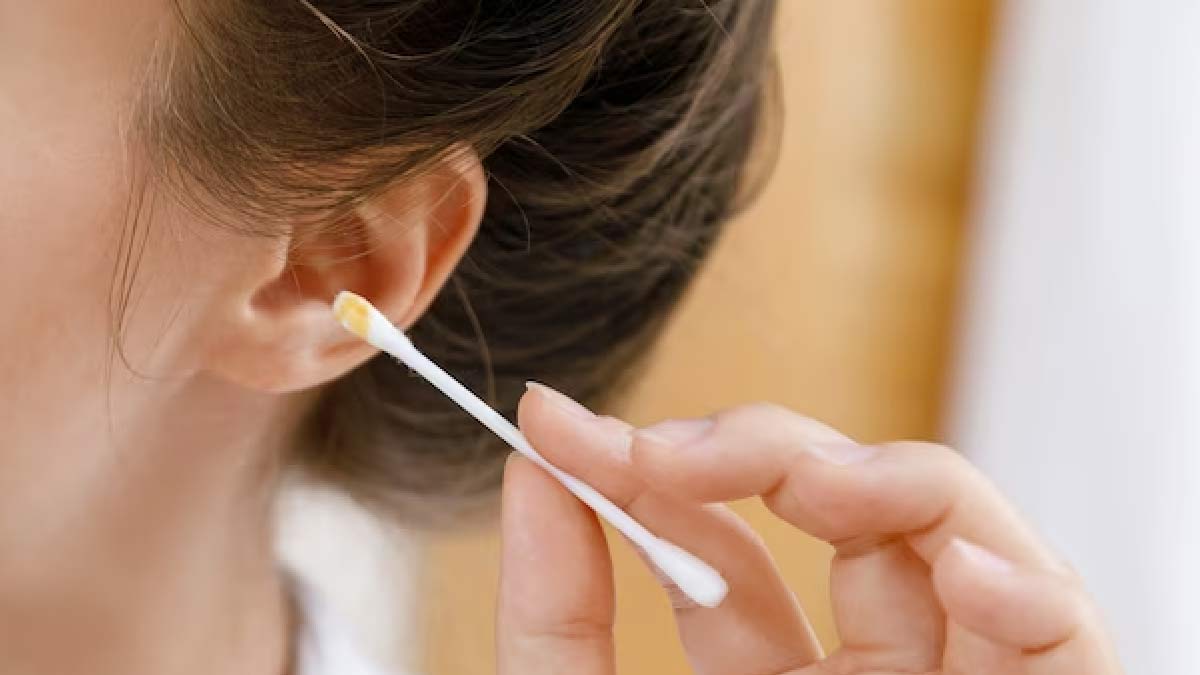
Are you troubled with constant itching in your ear despite following proper hygiene? Constant itching in your ear can stem from various causes, ranging from minor irritations to more serious conditions. This can even hamper your daily activities and may indicate an underlying issue that requires attention. In this article, we list the common cause of ear itching and how you can manage it.
Table of Content:-
Causes Of Constant Itching In Your Ears

Earwax Buildup
Earwax, also known as cerumen, is produced by glands in the ear canal and serves to protect the ear from dust, dirt, and bacteria. However, an excessive buildup of earwax can lead to itching and discomfort. Hence, you should avoid inserting objects, such as cotton swabs into your ear to remove wax, as this can push it deeper and worsen the problem. Instead, try using over-the-counter ear drops to soften the wax and aid in its natural removal.
Allergic Reactions
Did you know allergies to certain substances, such as hair products, jewellery, or environmental allergens, can also cause itching in your ears? Therefore, identifying and avoiding the allergen is key to managing the itching. Over-the-counter medicines may provide relief from allergy-related symptoms. Also, consulting with an allergist can help determine the specific allergen triggering the reaction.
Also Read: Meningitis And Hearing Loss: Expert Explains The Connection And How To Prevent It

Skin Conditions
Apart from this, skin conditions like eczema, psoriasis, or seborrheic dermatitis can affect the skin of the ear canal, leading to itching, redness, and inflammation. Proper skincare, including keeping the ear area clean and dry, can help alleviate symptoms.
Fungal Infections
Fungal infections, such as otomycosis, can develop in the moist environment of the ear canal, particularly after swimming or showering. Symptoms may include itching, discharge, and a feeling of fullness in the ear. Antifungal ear drops or oral antifungal medications prescribed by a healthcare professional are typically effective in treating fungal ear infections.
Bacterial Infections
Bacterial infections, such as acute otitis externa (commonly known as swimmer's ear), can cause itching, pain, and swelling in the ear canal. Therefore, avoid scratching or inserting objects into the ear, as this can exacerbate the infection. Antibiotic ear drops or oral antibiotics prescribed by a healthcare provider are usually necessary to treat bacterial ear infections.
Also Read: Headphones Or Earphones: What’s Good For Your Ears? Expert Explains Their Impact On Hearing
Eczema or Psoriasis Flares
People with eczema or psoriasis may experience flare-ups in the ear canal, leading to itching and inflammation. Gentle cleaning of the ear canal and the use of prescribed topical corticosteroids or other medications can help manage symptoms during flare-ups. It's essential to follow your healthcare provider's recommendations for managing your underlying skin condition.
Managing Itching in Your Ear

Here are some measures that you should follow along with the above strategies to manage symptoms:
- Avoid scratching or inserting objects into your ear canal.
- Keep your ears clean and dry, but avoid excessive cleaning that may irritate the skin or push wax deeper into the ear.
- Use over-the-counter ear drops to soften earwax or soothe irritation.
- Avoid exposure to potential allergens or irritants that may trigger itching.
- If you suspect an infection or other serious underlying condition, seek medical attention promptly for proper diagnosis and treatment.
[Disclaimer: This article contains information for informational purposes only, hence, we advise you to consult your expert if you are facing any health issues to get the necessary treatment and diagnosis.]
Also watch this video
Read Next
World Health Day: Could High-intensity Exercise Help Reverse Damage In Parkinson's Disease?
How we keep this article up to date:
We work with experts and keep a close eye on the latest in health and wellness. Whenever there is a new research or helpful information, we update our articles with accurate and useful advice.
Current Version